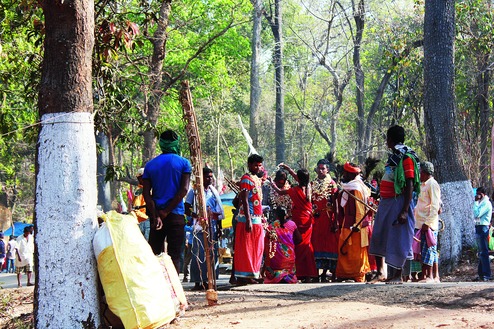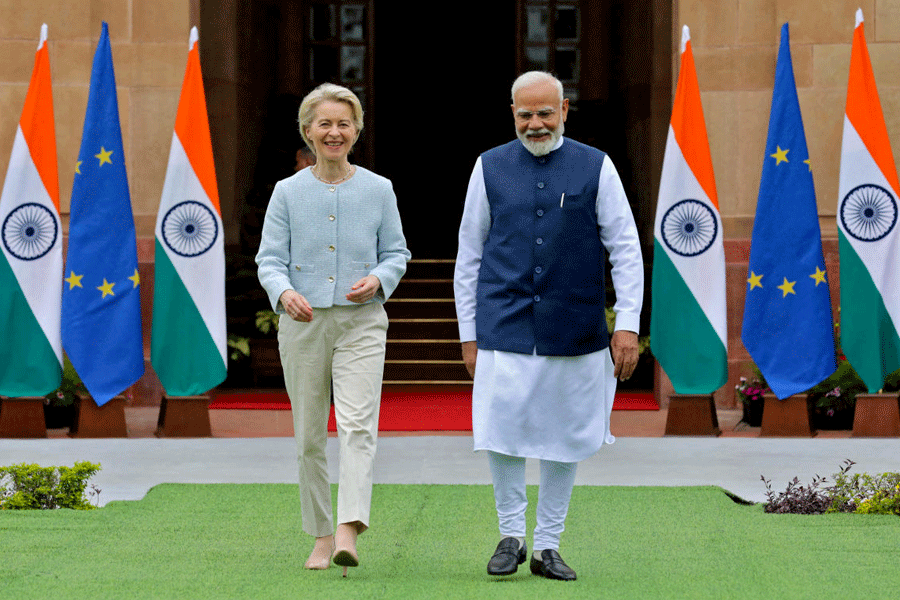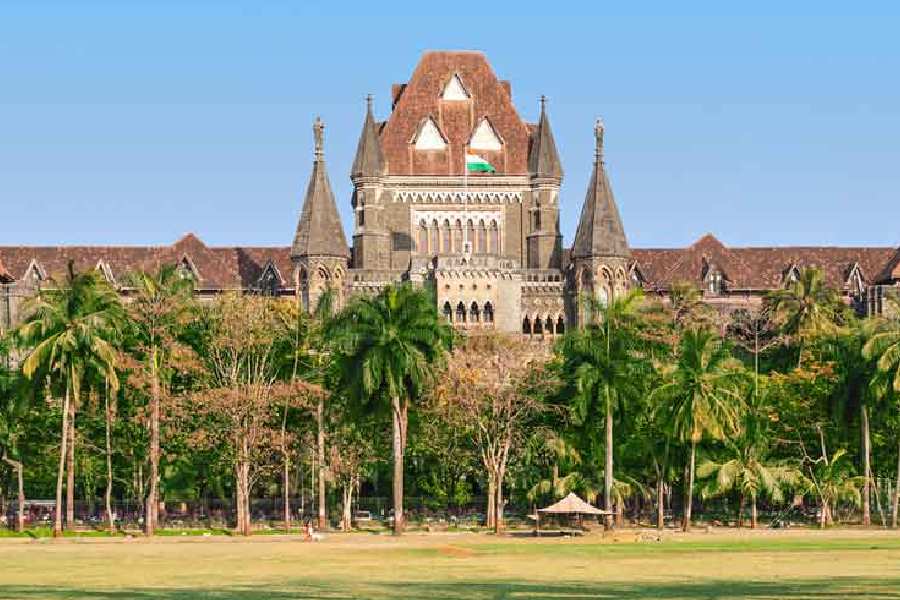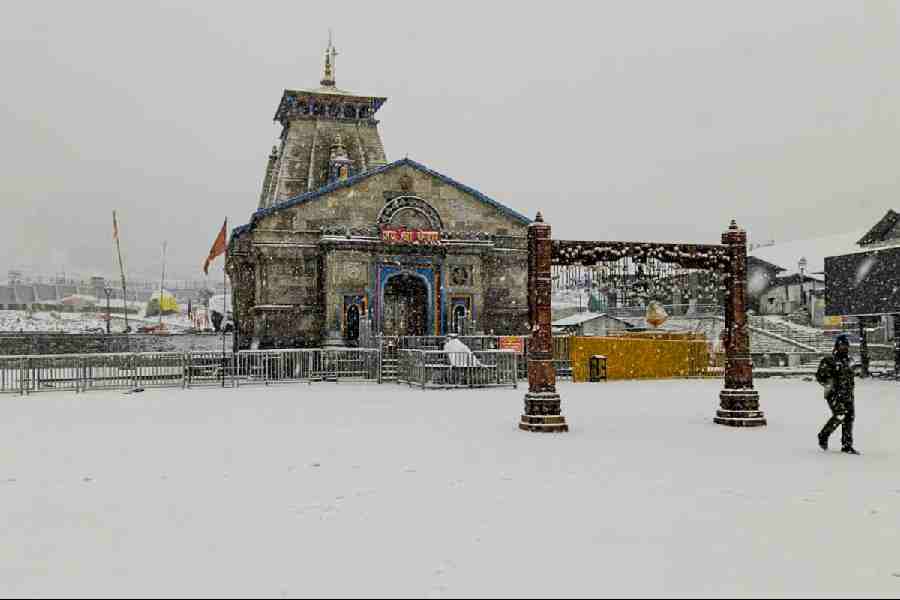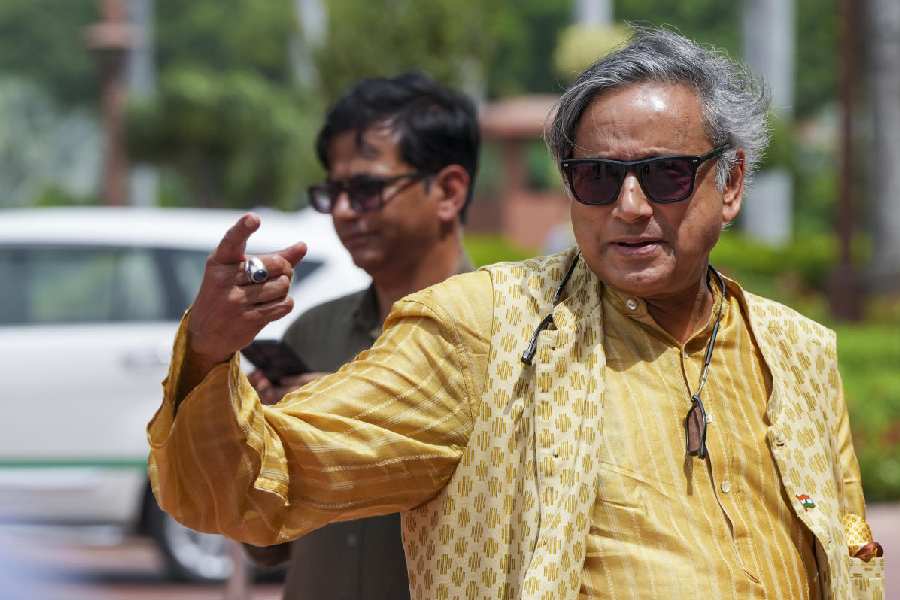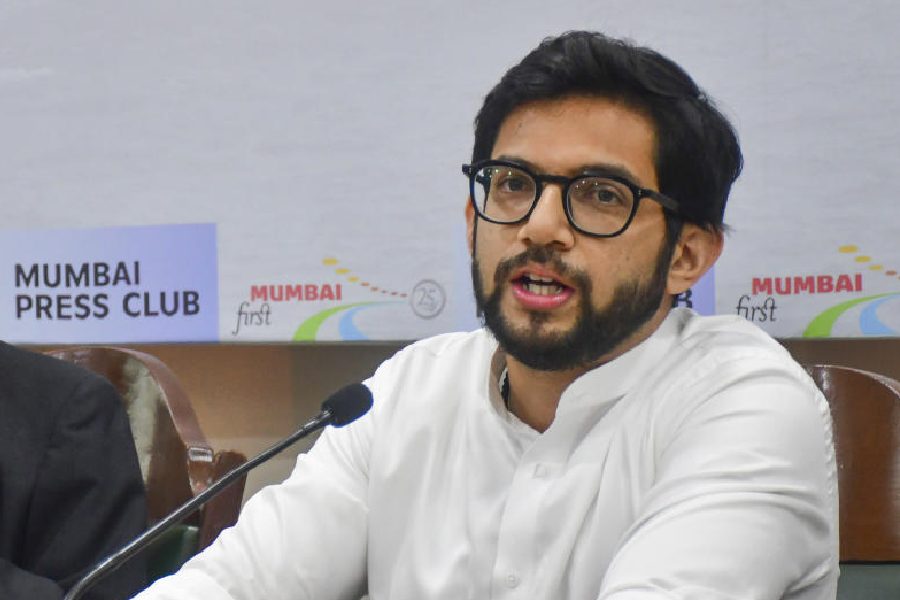

The day we meet Atindriyo Chakrabarty for the first time he is terribly busy. It is a March afternoon. Not only is he one of the organisers of the People's Literary Festival organised in Calcutta by the NGO, Bastar Solidarity Network, the 28-year-old human rights lawyer's first book in English, Indomitable Bastar: Account of an Eye Witness, is also slated for launch.
One minute he is raising anti-establishment slogans, the next minute he is hauling a huge flex board with an artwork of a tribal man and woman toiling in the mines, and immediately afterwards, ushering folk artistes from Chhattisgarh for a cultural performance.
The book is launched without any fanfare. It is described as a "first-hand account of a junior lawyer fighting legal cases" on behalf of Adivasis in Chhattisgarh.
In his staccato speech that day, Atindriyo said, "Currently, Bastar is one of the most densely militarised zones in the world. One security personnel is deployed for every 30 indigenous residents. Putting it right in the league of Syria, Palestine and Kashmir. Atrocities on tribals are hardly reported nowadays, an information blackhole has been created by the current government. Many journalists, rights activists and lawyers have either been forced to leave the area or have been imprisoned and tortured. Fake encounters, custodial deaths, fake surrenders, hunger deaths have increased manifold, yet they hardly get reported. My book has several narratives from victims and their families."
That day we meet fleetingly post book lau-nch. He has to fetch lunch packets for the speakers, look into their transport arrangements.
Weeks later, we meet once again, in a sanitised coffee shop. He is getting ready to take off for Bastar. Despite threats and life risks, he has gone deep into the forest many times, but this time it is not to offer legal aid to the underprivileged, who he says are needlessly embroiled in criminal cases.
He will be attending an Adivasi wedding. He seems to be looking forward to it. "The wedding celebrations of the tribal people involve marhwa, the traditional dance. Instead of the Vedic fire worship, they worship the indigenous tree," he tells us.
Gradually, over several cups of stiff black coffee, his own story unravels. During his frequent sojourns in Chhattisgarh's Bastar division, Atindriyo developed an interest and love for the tribal way of life, the forests, the people and their culture. "These original dwellers have lived in this area and thrived for several thousands of years, peacefully, until their land was encroached upon by the 'civilised' people - traders, miners, corporates and state forces," he says impassionedly. Then adds, "The judicial system is in shambles [in Chhattisgarh], there exists widespread impunity of security personnel and shadow armies."
In the winter of 2013, Atindriyo joined Janhit, a collective of lawyers working on legal aid for local tribals. The group was based in Bilas-pur, 400 kilometres north of Bastar. Janhit was founded by Sudha Bharadwaj, lawyer and civil rights activist. She has been fighting land-grabbing cases for these tribals for three decades.
Atindriyo says he had heard of her while at the National University of Juridical Sciences (NUJS), Calcutta, between 2007 and 2012.
"Since students are not allowed to join active politics at NUJS, I never got directly affiliated to any political party," he tells us. But ever since he can remember, he has had Left leanings. He talks about his family and the writers he read - Franz Kafka, Manik Bandyopadhyay, Mikhail Sholokhov, Eduardo Galeano, Ngugi Wa Thiong'o. His father used to be a civil servant. His mother has always been a housewife.
Atindriyo got interested in Chhattisgarh when he participated in a campaign for the release of human rights activist Binayak Sen, who was convicted and sentenced to life for his alleged links with Naxalites. He was nearly rusticated from NUJS because of this.
He tells us how he fervently wrote critical essays and poetry during this period of his life. And that is how Sudha Bharadwaj remembers him. She tells The Telegraph, "Atindriyo came to Chhattisgarh more dreamy-headed poet than lawyer, but soon, with his love to go out among people and his capacity to make eloquent arguments, he became a 'people's lawyer' with Janhit and then Maati [an environmental group]."
From Sudha ji, as Atindriyo refers to her, we also come to know how he took up cases of Dalit bonded labourers in Bilaspur, fought for the forest rights of Baiga tribals in Kawardha, drafted a petition to the National Green Tribunal for villagers of Raigarh facing devastating effects of coal mining and even argued for the commutation of a death penalty in the high court. In the last two years he was based out of Kanker, where he worked on several cases of land grab.
"In many places, the pattas or forest rights of tribals over their traditional lands have been taken away by the state government to facilitate mining," says Atindriyo.
While working with the Adivasis of northern Bastar's Raoghat Hills - a feature considered sacred by them - he says he learnt how government-owned steel and mining companies are in a mad rush to grab land. He observes in his book, "As a result of this hurry, legal processes are in a big mess. The state is helping its favourite companies by deploying hordes of central security forces in this area."
And all for what? Says Atindriyo, "Chhattisgarh's minerals are its biggest curse. Some day they [external forces] will clear all the forests and decimate all the people."
The excuse for security deployment in the region is apparently the Maoist revolutionary movement - it is known as Spring Thunder. It is said to have been accepted by the tribals. Atindriyo, however, says the Maoist administration system and the tribals don't gel. He has noticed this in the course of fact-finding missions across the zone. He writes: "The approach to culture of the Maoists, based on cultural revolution [socio-political movement launched by Mao Zedong in China], is different from the Adivasi approach." He also notes that the atheism of Maoists doesn't fit well with the deeply religious way of life of Gond Adivasis, the major tribespeople in the area. But it is his surmise that for the Adivasis, Naxalites are a lesser evil as compared to State forces and traders.
In recent times, says Atindriyo, schools have been strategically set up around security forces' camps to wean children away from Maoists, and use them as human shields against Maoist attacks.
"In the camps, boys are trained to become commandos to attack their own community. As for the girls, there have been multiple reports and accounts of security forces committing rapes," he says without breaking eye contact. He claims he has seen teenage girls travelling all the way to Bhadrachalam in Telangana for abortion. "Hospitals in Bastar refuse healthcare to these girls. Clinics don't want to get embroiled in trouble."
Atindriyo finished his legal assignment in Bastar last year and returned to Calcutta. He has collected over 50 narratives - first-hand accounts - from victims of security excesses and related crimes. He says, "It' very difficult to make people speak. They are scared to share their agony." He adds, "I have seen the worst kind of oppression and human rights violation."
He now wishes to work independently. Sudha Bharadwaj as well as other rights lawyers and activists might miss him, but his chosen area of work is Bengal. He wants to work for the victims of human trafficking in the state, land grab in the Sunderbans and stone quarry labourers in Birbhum.
And while his legal persona is immersed in all that hard fact, a green shoot of fiction is stirring within him. Atindriyo has started to write a historical novel around a 16th century Tibetan Lama. He says: "It will explore historical and cultural linkages between Tibet and Bengal."

